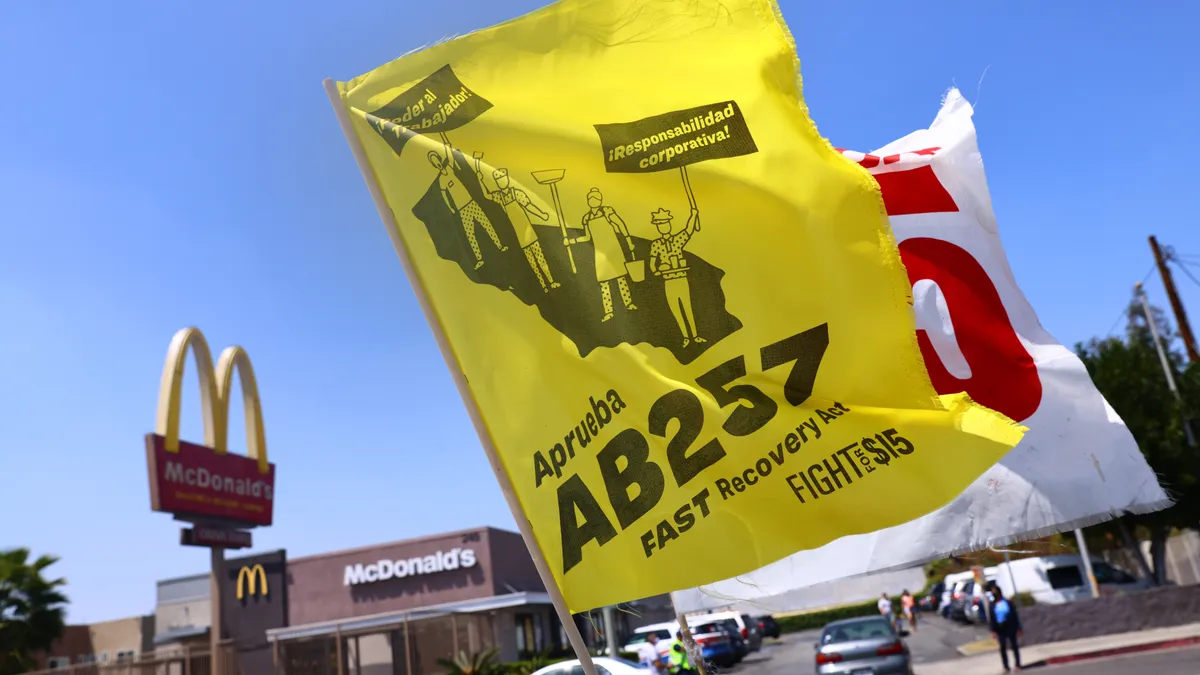Dive Brief:
- The Service Employees International Union, the National Restaurant Association and the International Franchise Association have reached a deal to support an amendment gutting a proposed joint-employer liability law in California, AB 1228. The deal would repeal that state’s Fast Food Recovery Act (AB 257), which passed last September, and replace it with a weakened version of its fast food standards council, according to press releases emailed to Restaurant Dive by the respective organizations.
- The deal is contingent on the withdrawal, by industry groups, of a petition for a ballot referendum to overturn AB 257, according to the amended bill. The restaurant industry had already raised more than $60 million dollars to back the overturn of AB 257 at the ballot box next November.
- The weakened fast food council will have the power to set wages in the industry, but not conditions; the council can only recommend changes to working conditions.
Dive Insight:
Such changes would be a major victory for the restaurant industry. The deal kills the joint-employer provision in AB 1228. The fast food standards council has been dramatically weakened. The law will still expire at the end of 2029. Municipalities are preempted from setting higher sectoral minimum wages. The bill does, however, set the industry’s minimum wage at $20 per hour and covers QSR chains with 60 or more units, rather than the original 100-unit minimum in the version of AB 257 passed last fall.
“It provides meaningful wage increases for workers, while at the same time eliminates more significant — and potentially existential — threats, costs, and regulatory burdens targeting local restaurants in California,” IFA CEO Matthew Haller said in a statement emailed to Restaurant Dive.
Labor groups also heralded the deal, though it is generally weaker than the version of AB 257 passed last year.
“The amendments to AB 1228 put aside valid concerns about the franchisor-franchisee relationship in favor of bringing stakeholders from across the industry together with workers to solve common problems and build a better future,” Joseph Bryant, EVP of SEIU said in a press release. “Our state has an opportunity to reaffirm our commitment to getting fast-food workers a seat at the table.”
Key to the deal was the passage, earlier this session, of AB 421, which overhauled California’s referendum system and offered a way for petitioners to withdraw a ballot initiative.
The fast food council proposed in the new bill would have nine voting members: two fast food industry representatives, two franchisee representatives, two representatives of workers, two representatives of workers advocates and one unaffiliated member of the public, and two non-voting members from the state’s regulatory bodies.
The California State Senate has until the end of Sept. 14 to pass the bill. After passage, the amendments would need concurrence by the legislature prior to the governor’s signature. But the backing of SEIU, the IFA and NRA make passage and concurrence likely.













